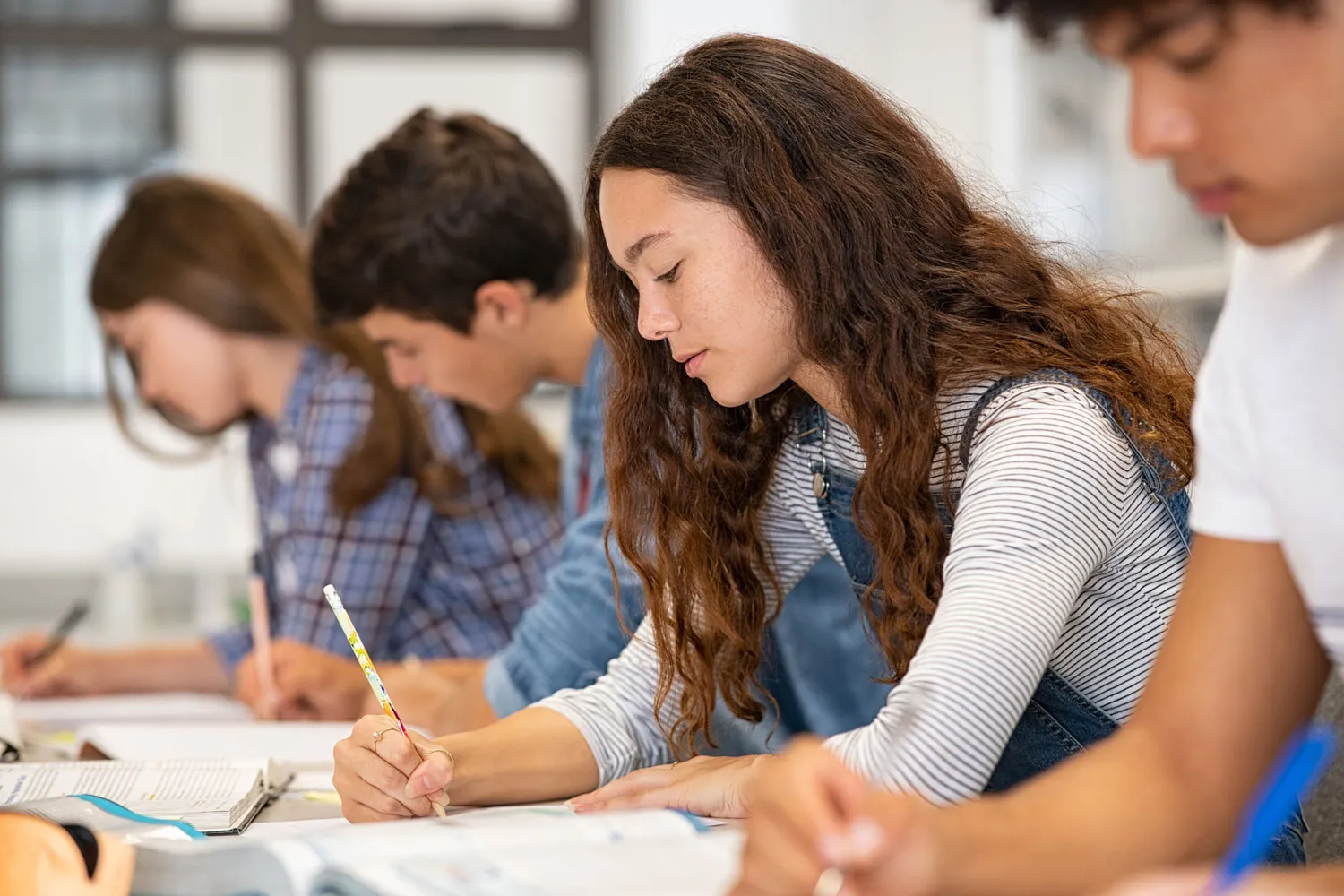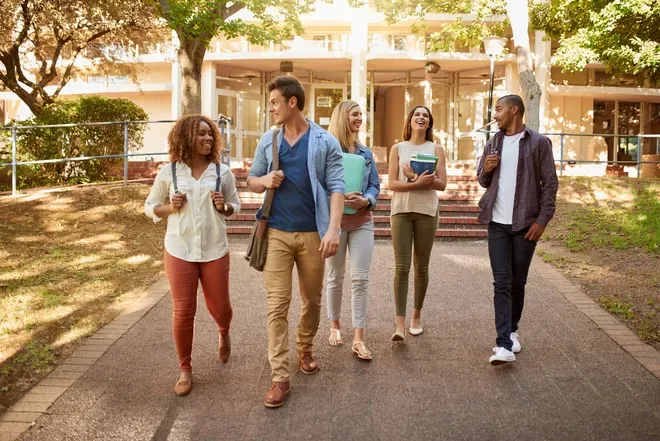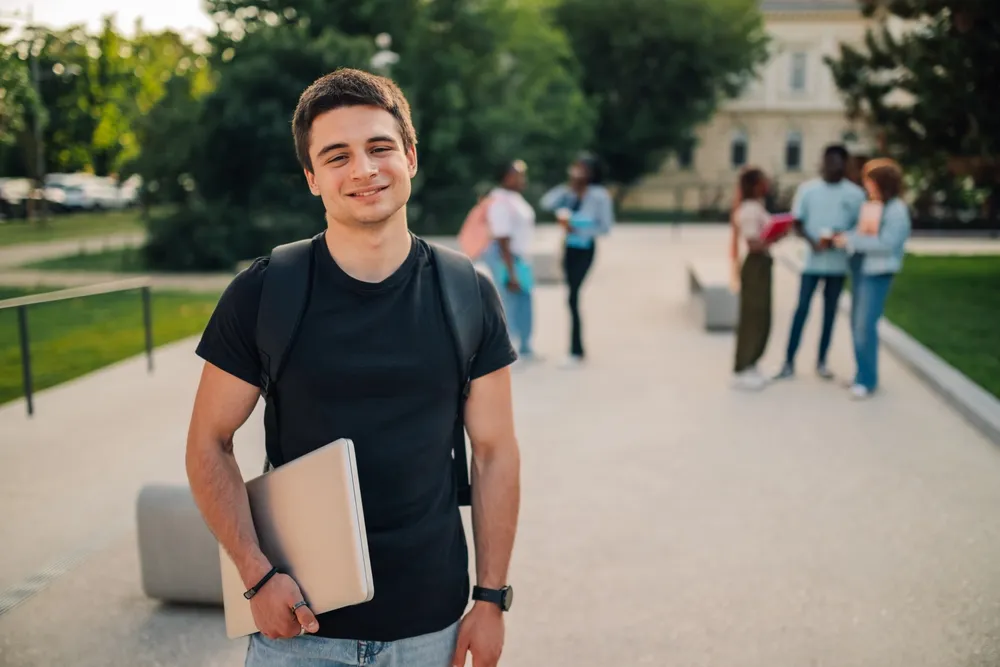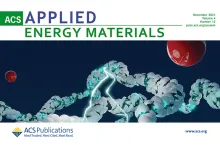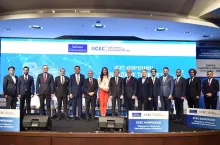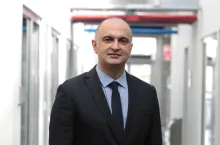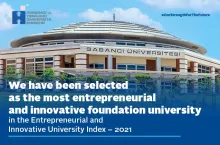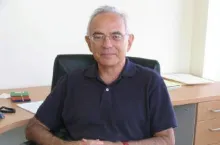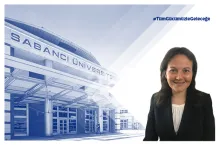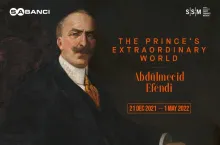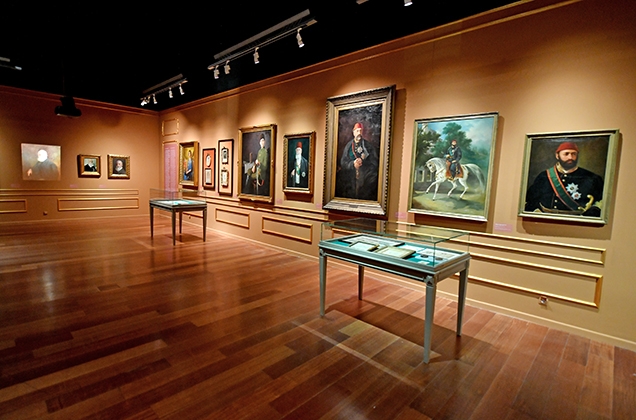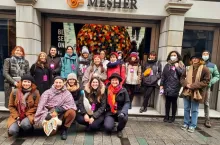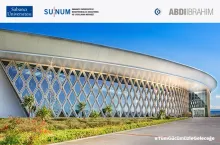Being one of the main items on the world’s and Turkey’s agenda, and having great importance for energy dynamics and climate, electric vehicles were discussed at the conference and the panel entitled ‘Electric Vehicles Outlook - Global & Turkey’ organized in Istanbul by Sabancı University Istanbul International Center for Energy and Climate (IICEC). During the conference, the role of electric vehicles in the future of energy and climate was discussed and forecasts about development perspective of electric vehicles were shared. In addition, the launch presentation of IICEC’s “Turkey Electric Vehicles Outlook” report was made.

Dr. Fatih Birol, Executive Director of the International Energy Agency (IEA), said the following: “There is a rapid development in the field of electric vehicles globally. In 2018-2019, two of every hundred cars sold in the world were electric cars. Today, we can see that the rate has neared 10 percent from the previous 2 percent. One of the most important items in the manufacturing of electric vehicles is battery. A growth of up to 10 times the current capacity is expected by 2030”.
Gürcan Karakaş, CEO of TOGG, said the following: “The rules of the game are changing in the world. The rules are changing particularly in the triangle of energy sector, automobile world and technology world. As TOGG, we have a holistic approach to the market, because we are here to do more than manufacturing a car. In the first quarter of 2023, we are starting our mass production and market launch”.
Haydar Yenigün, Chairman of the Automotive Manufacturers Association (OSD), said the following: “The Green Deal gives us clear guidance and countries commit to it. As a matter of fact, most of the members of OSD will have switched nearly all of their production to electric vehicles by 2030. Because automotive industry in Turkey exports more than 85% of its production to Europe; first automobiles will go electric, and they will be followed by light commercial vehicles, and then trucks and buses will come”.
Bora Şekip Güray, Director of IICEC, highlighted that, according to the High Case Scenario in the Turkey Electric Vehicles Outlook report, in case electric vehicles reach a share of above one third in total sales and that total number of electric vehicles reach 2 million by 2030, Turkey could achieve savings of 2.5 billion USD on its oil bill.
After the speeches from the lectern, a high-level panel was held which was moderated by Mehmet Erdem Yaşar, Associate Director for Energy at EBRD Turkey. Speakers of the panel were Sinan Ak, CEO of Zorlu Enerji, Ahmet Erdem, Country Chairman of Shell Turkey, Özge Özden, General Secretary of the Association of Electricity Distribution System Operators (ELDER), Özgür Özel, General Manager of SIRO, and Murat Pınar, Chairman of EUROGIA and of Eşarj.
SPEECHES FROM THE LECTERN
The role and development perspectives of electric vehicles in the future of energy and climate were discussed at the conference and the panel entitled ‘Electric Vehicles Outlook - Global & Turkey’ organized in Istanbul by Sabancı University Istanbul International Center for Energy and Climate (IICEC). Dr. Fatih Birol, Executive Director of the International Energy Agency (IEA), Gürcan Karakaş, CEO of TOGG, and Haydar Yenigün, Chairman of the Automotive Manufacturers Association (OSD) were the speakers at the conference. In the conference, Bora Şekip Güray, Director of IICEC, made the launch presentation of the IICEC “Turkey Electric Vehicles Outlook” report.

Electric vehicles develop rapidly
Speaking at the opening session of the online conference, Dr. Fatih Birol, Executive Director of the International Energy Agency (IEA), emphasized that Sabancı University Istanbul International Center for Energy and Climate (IICEC) achieved a very important project in such a short time, in less than a year. Making a detailed presentation during his speech about energy and climate, new energy technologies, global outlook of electric vehicles, and global energy markets, Fatih Birol said the following in summary:
“The main way to solve climate problem is to make the energy sector clean. Important steps are being taken for this. The most important step was finalized in Glasgow last month. All the countries made zero emission commitments in the years to come. A new energy system is at the horizon. A new energy system is being established. Renewable energy, hydrogen, electric vehicles, digitalization, nuclear… Important steps are being taken in all these fields.
There is a rapid development in the field of electric vehicles globally. In 2018-2019, two of every hundred cars sold in the world were electric cars. Today, we can see that the rate has neared 10 per cent from the previous 2 per cent. From my conversations with the US Secretary of Energy, the US Secretary of Transportation, and all the big companies’ CEOs who were present there, it is seen that all these transformations are to come gradually. A couple of weeks ago, I had a meeting with the CEOs of the top 20 car manufacturers in the world, and 18 of them said electric vehicles would be their main field of production by 2030.
The most important subject is the Battery Technology
One of the most important items in the manufacturing of electric vehicles is battery. A growth of up to 10 times the current capacity is expected by 2030. There is a growth particularly with lithium-ion batteries all over the globe, from Europe to Asia, and America.
Critical elements are needed for manufacturing of batteries. Lithium is one of them. Others include magnesium and cobalt, which can be found in many parts of the world. However, three fourth of these elements are concentrated in only a few countries. It is not possible to consider this fact independently from the security of energy supply. Dependence on critical minerals is a serious problem and it is not only where minerals are but also where they are processed that matters. Currently, 90% of refinery capacity is in one country, China. Many countries are negotiating with each other to establish a new system of security of critical energy supply under the leadership of the International Energy Agency.
Looking at the past, one can see that no new energy technology could have been made possible without the support of governments. In the energy sector, especially in the infancy period, government support is needed for new technology projects. The story of Tesla, a company that everybody regards with admiration, started after the financial crisis in 2008-2009 by receiving huge support from the relief fund. This initial support at the amount of around half a billion dollars played a very big role in Tesla’s success today.
If countries fulfill their climate change commitments, lithium demand will grow 7 times in 10 years. This is a huge increase and prices will go up. Many countries have critical mineral reserves, but they have not worked on it so far. Countries like Canada, the US, Europe, Australia are trying to issue new laws to fully exploit lithium or nickel minerals. If the second economic relief law is issued in the US, there will be a very rapid increase in the demand for electric vehicles, which may create an upwards pressure on lithium and other critical minerals. There may be some synchronization problems between new supply policies, manufacturing policies and the demand. The demand many be a little higher than expected, which may push up the prices. It is possible to see such a risk for the moment”.
“The rules of the game are changing in the world”
Gürcan Karakaş, CEO of TOGG, said the following about the world’s perspective on electric vehicles and what TOGG has been doing:
“The rules are changing particularly in the triangle of energy sector, automobile world and technology world. In terms of technology, some concerns and problems that relate to electric vehicles have been solved. Costs are decreasing rapidly; the problem of range has been solved. Thanks to quick charging, we can easily charge a battery by 80% in less than half an hour. Meanwhile, sales volume and profitability of the sector continue to grow. Looking at 2035, there is a room for profitability, growing with data-based business models born alongside the new generation vehicles. If we do not start to develop products today for the 40% zone, and do not get prepared to take our place there, it means we will be in trouble in terms of profitability. The state has a big role to play in this sense. On a global scale, we think it is China that woke up the first to follow this direction. In our country we move fast with the support of our state and our vision of transition to electrification.

As TOGG, we have a holistic approach to the market, because we are here to do more than manufacturing a car. For this, we need to design the vehicle both around a battery and as a smart vehicle. We do this in the framework of new generation electrical and electronics architecture. In the future, it is not the horse power but the software power that will make a difference. The world of the future is a world with computers at the center. This is how the future is being shaped. We divided central computers into four because we are racing against the clock. In the first quarter of 2023, we are starting our mass production and market launch. In 2026-2027, we will have fully designed and industrialized our central computer. At this point, it is also important to be environmentally sensitive. To comply with the environmental requirements and promote our environmental awareness, we are establishing in Gemlik the cleanest facility in our country, even in Europe, and most probably in the world, although I am not sure about China. Our works are continuing. In January, we will make our global launch in Las Vegas”.
The Green Deal gives us clear guidance
Haydar Yenigün, Chairman of the Automotive Manufacturers Association (OSD), pointed out that the Green Deal provided clear guidance to the automotive sector, which went through a challenging time due to the pandemic conditions, adding that interesting developments would occur in the sector.

Highlighting that automotive sector generated more than 5% of Turkey’s GDP, Haydar Yenigün said the following:
“There is a capacity of around 2 million vehicles and we expect it to go up to 2.5 million in the 1 to 2 years to come. 85% of our 2 million capacity is exported. We generate a foreign trade surplus of 6.8 billion USD. To sustain this, R&D investments are indispensable. The R&D investments that the state has been supporting for the last 10 years have been clearly welcomed by the sector. There are more than 4 thousand employees in 157 R&D centers. Where do all these efforts place Turkey? In Europe, we rank 6th in automobile manufacturing, 2nd in commercial vehicle manufacturing, so we rank 4th in total automotive manufacturing in Europe.
When we look at electric vehicles, there are two pictures that we can see. Today, clients impose environmental protection as a priority requirement to us, manufacturers. In addition, they demand connected vehicles, autonomous vehicles, and vehicles that can be pooled, so they demand electric vehicles.
By 2030, all these demands must be met. Because the Green Deal gives us clear guidance and countries commit to it. As a matter of fact, most of the members of OSD will have switched nearly all of their production to electric vehicles by 2030. Because automotive industry in Turkey exports more than 85% of its production to Europe. This is indispensable for us. First automobiles will go electric, and they will be followed by light commercial vehicles, and then trucks and buses will come. For the latter, things will need to be worked on a little more, they will have to wait for some more hydrogen enter the system. All in all, their carbon-neutrality target will be reached around 2040.
As the automotive sector, we will have realized this much earlier than the target date for Turkey. What directly relates to us is the charging stations. In this field, there is a technological development close to the one in the automotive industry.
We need digital technologies in this respect. In addition, you cannot control this circular economy without blockchain. I mean, when you manufacture a battery and ensure that you follow it up, then you can ensure that circular economy works correctly.
For all these developments to happen, legislation should be changed, we should have a transition plan, there should be incentive mechanisms, and the taxation policy in Turkey should be restructured. All these elements should be seriously managed by lawmakers”.

“Turkey can save up to 2.5 billion USD by 2030”
Bora Şekip Güray, Director of IICEC, who presented the “Turkey Electric Vehicles Outlook” report prepared by IICEC as a result of a long research, highlighted that the report included an analytical approach to today and tomorrow of electric vehicles, thus being the first-of-its-kind in Turkey. Güray continued as follows:
“As IICEC, we took the modelling infrastructure and scenario-based analyses that we developed in this report, in which we illustrated quantitatively the remarkable contributions of the growth of electric vehicles to Turkey’s energy balance and environmental performance. According to the High Case Scenario in the Turkey Electric Vehicles Outlook report, in case electric vehicles reach a share of above one third in total sales and that total number of electric vehicles reach 2 million by 2030, Turkey could achieve savings of 2.5 billion USD on its oil bill upon oil’s substitution by electricity. Such savings in oil consumption secured by clean energy will decrease the risks related to price fluctuations of oil, of which Turkey is an importer, and support Turkey’s targets to strengthen security of energy supply. In this scenario, road transportation emissions, which rank the second in Turkey’s emissions inventory, will start to decrease before 2030, and contribute to a future of energy with net-zero emission and clean energy transition perspective.
With this report, which examines the best practices in the world, global and regional trends, Turkey’s high growth potential and opportunities in this field with an analytical approach, we present 5 concrete suggestions to the stakeholders of the e-mobility ecosystem.”
5 concrete suggestions
- On the axis of 2053 net-zero target and clean energy transition, determine concrete, realistic and attainable policy targets, and implement guiding and supportive mechanisms;
- Secure the sustainability of this transition through development of green energy sources;
- Develop a holistic e-mobility ecosystem based on the environment and technology for the purpose of providing maximum social benefit through collaboration and coordination between public sector, private sector and academia;
- Accelerate R&D and domestic production regarding technologies with high value proposition such as digitalization, smart systems, energy storage;
- Strengthen individual and corporate entrepreneurship ecosystem and human resources potential in a way to support taking a position as a regional and global actor.
Güray emphasized that the report also included important messages, such as taking technology-focused opportunities for competitive transition of the automotive industry, which is very critical for Turkey, planning and operating charging stations and electricity distribution networks as efficiently as possible, and extending innovative financing and new generation business models.
THE PANEL
Highlighting the importance of electric vehicles for energy dynamics and climate, the panel participants said the following:

“As Shell, we aim to establish 250 thousand charging points by 2025, and 5 million by 2050”
Ahmet Erdem, Country Chairman of Shell Turkey:
“One of the most important events in 2021 was undoubtedly the approval of the Paris Agreement by the Turkish Parliament, which also drew the roadmap of the green deal text. The expectation for the next year is to prepare the studies that will determine the roadmap for the net-zero carbon journey to 2053. As a company that has been working on this issue since mid-1990s, we clearly support the net-zero carbon target by 2050 in line with the Paris Agreement. While doing so, we have plans to decrease by half our carbon emissions resulting from our own operations, the energy sources that we import and the use of the energy that we offer to consumers by 2030, and make it zero by 2050. With regards to new products, we already started to work in the fields such as hydrogen and bio fuels. Shell has plans to transform 6 of its 15 big refineries into energy parks. In this context, we will decrease our refined product manufacturing by 55% by 2025. One of the biggest investments of Shell is about renewable energy sources. There are vehicle charging facilities that we install at our own stations. As Shell, we carry out many partnerships and procurement operations. We aim to establish 250 thousand charging points by 2025, and 5 million by 2050”.
“I think that investments will be accelerated if regulatory steps are completed”
Sinan Ak, CEO of Zorlu Enerji:
“Under the current circumstances, to travel with petrol vehicles, you go to a petrol station, buy petrol in 5 to 10 minutes, and you drive on. But when you drive an electric vehicle, you will be charging your vehicle at home, at your workplace or shopping malls. If you want to electrify the automotive sector, considerable infrastructure investments will be needed, especially in the premises owned by municipalities. This seems to be the most challenging part of the process. As far as we can see, municipalities are trying to take some steps but they are very far from where they should be. They should change their mindset. What is important at this point is that the regulatory framework has not been completed yet. It will be useful if all the stakeholders participate in this process. I think that investments will be accelerated if regulatory steps are completed. Range of electric cars is 500 kilometers, but considering the speed on the roads, infrastructure works about charging points should be accelerated. We believe the state should have some incentive mechanisms. The most important thing is to incentivize establishment of infrastructure in intercity roads, especially for the periods of intensive circulation”.
“Distribution companies will play an important role”
Özge Özden, General Secretary of the Association of Electricity Distribution System Operators (ELDER):
When we look at the domestic trends, we can see TOGG has investments, companies like Zorlu Group currently produce charging units. Therefore, we should be talking about a multidimensional impact area at the national scale involving industry, technology, employment, and growth. The Economic Reforms Action Plan dated 12 March 2021 includes the government’s target about implementation of electric vehicles charging infrastructure by the end of this year. There is a main goal merging all these trends: equip every corner of Turkey with electric vehicle charging infrastructure. At this point, considering the technological costs and the specific conditions of our country, there are some obstacles to realizing this goal only based on the market dynamics. Due to the production costs, investments seem to have a quite long breakeven period. In addition, there are problems in terms of extension of the EV charging network. I believe electricity distribution companies could play a role to overcome these obstacles”.
“By 2026, we aim to start to manufacture enhanced battery cells in Turkey”
Özgür Özel, General Manager of SiRo:
“As TOGG, we are in contact with the leading battery manufacturers in the world. We had a detailed set of criteria for this matter. One of the criteria is energy density, and the others are cost and logistics. We chose Farasis as it stood out as the best option due to manufacturing in Turkey in addition to other criteria such as warranty conditions, durability and safety. Compared to its competitors, Farasis has a technology that provides an advantage of 15 to 25% in terms of energy density. We have also started discussions for a strategic partnership. Our goal was to manufacture in Turkey and get to the core technology. As a priority, we want to make our production facilities ready in the next year. We want to organize our production in a way to support TOGG’s production plan. We aim to enhance our R&D, grow our team rapidly, and start to manufacture enhanced battery cells in Turkey in 2026. This is not confined to TOGG. There is a window of opportunity with electric vehicles, and there is a window of opportunity with batteries. In summary, we believe we are doing the right thing at the right time. While doing all this, we have an investment plan of 30 billion TL. We estimate this investment will contribute to our country’s GDP by 30 billion EUR and decrease the current account deficit by 10 billion EUR by 2032”.
“We are actually working on a new lifestyle”
Murat Pınar, Chairman of EUROGIA and of Eşarj:
“Referring to electric vehicles, we need to design the technology around the battery, but in general, around the people. Today, we are still talking about the cars for 4 in the American story. When we look at the evolution, we should actually revisit this. Does everyone really want a car for 4 people, or will micro-mobility take the lead? You manufacture vehicles, you focus on people, because they will spend part of their lives in those vehicles. But how about human focus? It is no more only about going from point ‘a’ to point ‘b’. Vehicles have computers in them, you are connected to the internet, which means you remain connected to life. In addition, vehicles are now connected to an active network. In other words, they are like a moving generator and you will be able to use the power in your car when there is a power cut. New requests arise as designs are developed. At the end of the day, we merge all these requests. As a matter of fact, we are all working on a new lifestyle. Of course, if we are to change the lifestyle of the future, we should consult the future generations about it. Therefore, I believe we should consult them, get their answers about how things should be in the future, and get prepared accordingly”.



